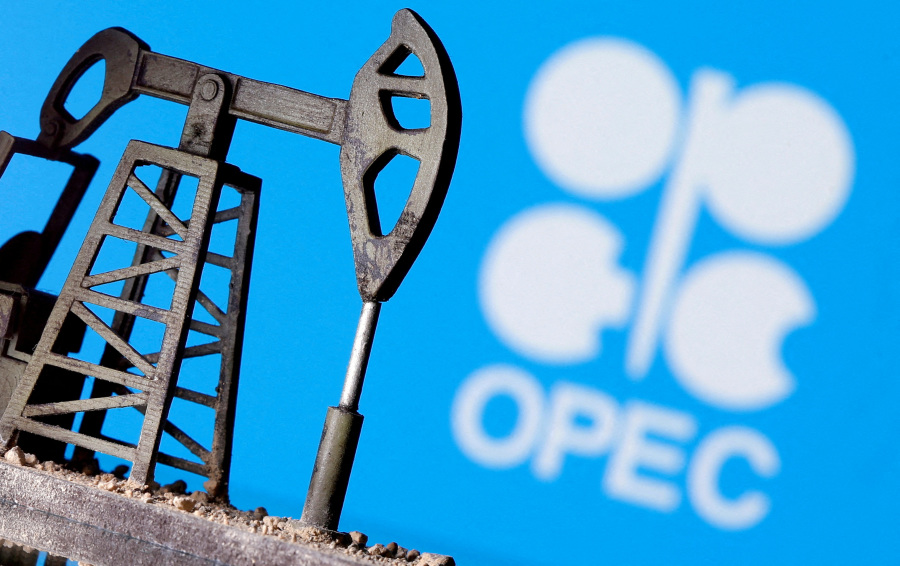A 3D printed oil pump jack is seen in front of displayed OPEC logo in this illustration picture, April 14, 2020. (REUTERS/Dado Ruvic)
LONDON (Reuters) -Oil prices were steady on Monday and on track to fall for the third month in a row as a strong supply outlook and questions around demand outweighed fears that Israeli strikes in Lebanon and Yemen could escalate conflict in the Middle East.
Brent crude futures for November delivery, expiring on Monday, lost 10 cents to $71.88 a barrel as of 0933 GMT. The more active December contract rose 6 cents to $71.60. U.S. West Texas Intermediate (WTI) futures lost 10 cents to $68.08 a barrel.
Both benchmarks had earlier gained more than $1.
Brent was on track to lose almost 9% month-on-month, which would be its biggest decline since November 2022. WTI was set to decline more than 7% since the end of August.
On Monday prices had been supported by the possibility that Iran, a key producer and member of the Organization of the Petroleum Exporting Countries, may be directly drawn into a widening Middle East conflict.
Since last week Israel has escalated attacks, conducting strikes which have killed Hezbollah and Hamas leaders in Lebanon and hit Houthi targets in Yemen. The three groups are backed by Iran.
"We suspect that some oil market participants will look past this escalation given that there still has not been a major physical supply disruption and Iran has not demonstrated any appetite to enter this nearly year-long conflict," said Helima Croft of RBC Capital Markets.
Oil prices also had a muted response to Beijing's announcement last week of fiscal stimulus measures in the world's second-biggest economy and top oil importer.
Traders question whether the measures would be enough to boost China's weaker-than-expected demand so far this year.
Data on Monday was not encouraging for demand, showing China's manufacturing activity shrank for a fifth straight month and the services sector slowed sharply in September.
Instead, prices have been depressed by news that half a million barrels of Libyan crude exports may come back online as a central bank dispute is resolved, and a report that Saudi Arabia may stop targeting an oil price of $100 a barrel as OPEC+ begins to unwind voluntary supply cuts from December.
Later on Monday, markets will be waiting to hear from Federal Reserve Chair Jerome Powell for clues on the central bank's pace of monetary easing. Seven other Fed policymakers are also due to speak this week, ANZ analysts said in a note.
(Reporting by Paul Carstenin London, Gabrielle Ng and Katya Golubkova; Editing by Christian Schmollinger, Jamie Freed, Sonali Paul and Jan Harvey)











News magazine bootstrap themes!
I like this themes, fast loading and look profesional
Thank you Carlos!
You're welcome!
Please support me with give positive rating!
Yes Sure!